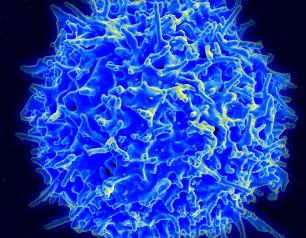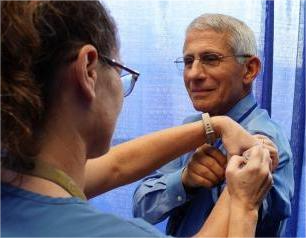美国国家过敏和传染病研究所(NIAID),于1948年成立,是组成美国国立卫生研究院的27个研究所和中心的其中之一。NIAID由一个司长办公室和七个部门组成,其中,NIAID的三个研究部门指导和管理支持外部学术和研究机构研究(称为校外研究)的赠款,合同和合作协议,分别是:艾滋病司,过敏、免疫学和移植科和微生物学和传染病学部,均由国际开发署资助研究,第四个是校外部门:校外活动司(DEA),负责监督与资助赠款和合同相关的政策和管理活动,管理NIAID研究培训计划,并对解决研究所特定需求或重点的赠款和合同进行初步同行评审。还有三个部门在NIAID进行研究,分别是:校内研究部,疫苗研究中心和临床研究部。
NIAID的使命是开展并支持基础和应用研究,以更好地了解,治疗并最终预防传染性,免疫学和过敏性疾病。60多年来,NIAID的研究已经产生了新的疗法,疫苗,诊断测试和其他技术,这些技术改善了美国和世界各地数百万人的健康。除此之外,NIAID还有一个独特的使命:应对新出现的公共卫生威胁。
为此,NIAID管理着一个复杂而多样化的研究组合,旨在做到以下几点:扩大感染性、免疫性和过敏性疾病所有领域的知识广度和深度;发展灵活的国内和国际研究能力,以适当应对国内外新出现和重新出现的疾病威胁。
NIAID推进了对世界上许多最难治和最普遍的疾病的理解,诊断和治疗。主要研究领域包括新出现和重新出现的传染病,如结核病和流感,艾滋病毒/艾滋病,生物防御,以及免疫介导的疾病,包括哮喘和过敏。



The National Institute of Allergy and Infectious Diseases (NIAID), founded in 1948, is one of 27 institutes and centers that make up the National Institutes of Health. NIAID consists of an Office of Directors and seven departments, of which three NIAID's research departments direct and administer grants, contracts and cooperation agreements that support research (known as off-campus research) from external academic and research institutions, namely: the AIDS Division, the Department of Allergy, Immunology and Transplantation and the Department of Microbiology and Infectious Diseases, all funded by the International Development Agency, and the fourth is the External Departments (DEA), which oversees policy and management activities related to funding grants and contracts, Administer the NIAID Research Training Program and conduct preliminary peer reviews of grants and contracts that address the specific needs or priorities of the Institute. There are also three departments conducting research at NIAID: the On-Campus Research Department, the Vaccine Research Center, and the Clinical Research Department.
NIAID's mission is to conduct and support basic and applied research to better understand, treat, and ultimately prevent contagious, immunological, and allergic diseases. For more than 60 years, NIAID's research has produced new therapies, vaccines, diagnostic tests and other technologies that have improved the health of millions of people in the United States and around the world. In addition to this, NIAID has a unique mission: to address emerging public health threats.
To this end, NIAID manages a complex and diverse portfolio of research aimed at expanding the breadth and depth of knowledge in all areas of infectious, immunological and allergic diseases; Develop flexible national and international research capacity to respond appropriately to emerging and emerging disease threats at home and abroad.
NIAID advances the understanding, diagnosis, and treatment of many of the world's most refractory and most prevalent diseases. Key research areas include emerging and re-emerging infectious diseases such as tuberculosis and influenza, HIV/AIDS, biodefense, and immune-mediated diseases, including asthma and allergies.